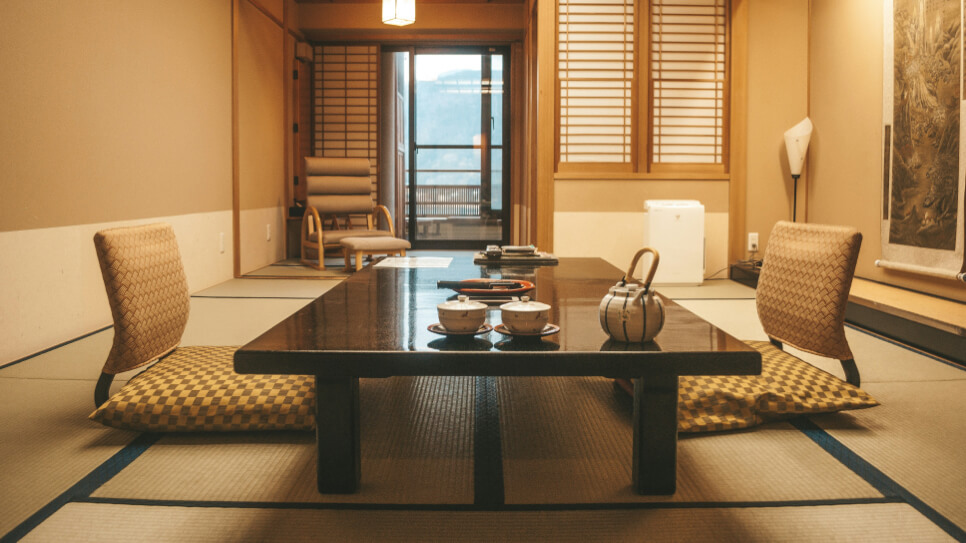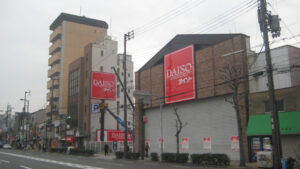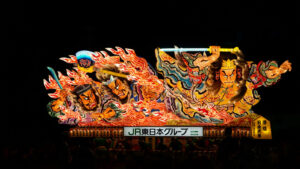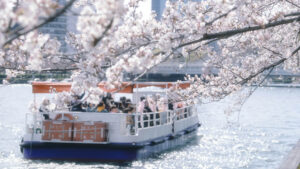For travelers visiting Japan, choosing where to stay is a key factor that can greatly affect the overall satisfaction of their trip. Japan offers a wide variety of accommodations, from traditional ryokan inns to modern business hotels, capsule hotels, and guesthouses. Since booking methods, etiquette, and important considerations can vary by country, understanding them in advance is essential.
This article provides a clear and practical guide to the different types of accommodations in Japan, how to choose the right one, how to book, and what kinds of support are available for international visitors. Even if it’s your first time visiting Japan, you’ll find useful information that will help you enjoy a safe and comfortable stay. By the end of this article, you’ll be ready to find the perfect lodging and make the most of your journey in Japan.
Contents
- 1 Types of Accommodation in Japan
- 2 How to Choose the Right Accommodation in Japan
- 2.1 Choosing by Travel Purpose
- 2.2 Understanding Prices and Comparing Options
- 2.3 Accommodation Rules and Etiquette
- 2.4 Using Online Booking Sites
- 2.5 Booking Directly by Phone or Email
- 2.6 Booking Through a Travel Agency
- 2.7 Multilingual Support and Foreign-Friendly Accommodations
- 2.8 Accommodations for Special Needs
- 2.9 Preventing Travel Issues and Troubles
- 3 Discover Japanese Accommodations and Enjoy a Comfortable, Worry-Free Trip
Types of Accommodation in Japan
Traditional Japanese Lodging
What is a Ryokan?
A ryokan is a traditional Japanese inn characterized by features such as tatami-mat rooms, futon bedding, communal baths or hot springs, and traditional Japanese meals. Many ryokan offer packages that include both dinner and breakfast, typically featuring multi-course kaiseki meals prepared with seasonal local ingredients. One of the major attractions of staying at a ryokan is the opportunity to experience the spirit of “omotenashi” — Japanese hospitality provided with great attention to detail and care.
Features of a Minshuku
A minshuku is a small, family-run lodging similar to a bed and breakfast. Compared to ryokan, minshuku tend to be more affordable and offer a homely, casual atmosphere. While rooms and meals are simpler, the charm lies in interacting with local residents and experiencing the region’s culture firsthand. In rural areas or seaside towns, you may even enjoy home-cooked meals featuring locally sourced ingredients.
Staying at a Temple Lodging (Shukubo)
A shukubo is a temple-operated lodging that offers a unique stay in a Buddhist environment, often including opportunities for spiritual and cultural experiences. These lodgings are open to the general public and are ideal for those seeking tranquility or wishing to explore Buddhist traditions. Common experiences include participating in morning prayers, practicing calligraphy (shakyo), and enjoying vegetarian Buddhist cuisine (shojin ryori). Staying at a shukubo is a special way to deepen your understanding of Japanese culture.
Modern Types of Accommodation
Convenience of Business Hotels
Business hotels in Japan are primarily designed for business travelers, but they are also a convenient and popular option for tourists. These hotels are typically located in urban areas or near train stations throughout the country, and offer relatively affordable rates. Although rooms are compact, they are well-equipped with essentials such as a bed, shower, toilet, and Wi-Fi.
Many business hotels have 24-hour front desk services, allowing for flexible check-in and check-out times. Additional amenities may include breakfast plans, coin-operated laundry machines, and vending machines—making them highly convenient for short stays.
City Hotels and Resort Hotels
City hotels are mid- to high-end hotels located in city centers. They feature spacious rooms and a range of facilities, such as restaurants, fitness centers, and meeting rooms. These hotels are suitable for both business and leisure travelers seeking comfort and convenience.
Resort hotels, on the other hand, are located in scenic destinations such as hot spring areas, coastal towns, and mountainous regions. These accommodations are ideal for relaxation or extended stays, offering amenities like large public baths, spas, swimming pools, and activity programs. Both types of hotels are known for their high level of hospitality, and many offer multilingual support to assist international guests.
How to Use Capsule Hotels
Capsule hotels are a uniquely Japanese style of accommodation that provide small, individual sleeping pods at budget-friendly rates. Each pod is designed for one person and typically includes a curtain or door to ensure a minimum level of privacy. Shared facilities such as showers, baths, lounges, and lockers are available, and many locations offer a wide range of toiletries and amenities—even for those traveling light.
In recent years, more design-conscious capsule hotels have emerged, especially near airports and major train stations, catering to international tourists. Capsule hotels are perfect for short naps or low-cost overnight stays. Many now offer gender-separated floors or women-only areas, making them a safe and accessible option even for first-time users.
Unique Types of Accommodation
Guesthouses and Hostels
Guesthouses and hostels are simple and affordable accommodations, particularly popular among backpackers and solo travelers. Many of them offer dormitory-style rooms, where guests pay per bed, making them ideal for those traveling on a budget. Shared spaces like kitchens and lounges also provide opportunities to naturally interact with fellow travelers, enriching your travel experience.
In recent years, more guesthouses have started offering multilingual support to accommodate international guests. English signage and a globally friendly atmosphere make these places comfortable for foreigners. Many also offer private rooms, making them a great choice for travelers who value their privacy.
Glamping Facilities
Glamping (a combination of “glamorous” and “camping”) is a new style of accommodation that lets you enjoy nature without sacrificing comfort. Tents, cabins, or dome-shaped lodgings come fully equipped with beds, furniture, air conditioning, showers, and toilets—offering a more luxurious alternative to traditional camping.
Glamping sites are spreading across Japan’s scenic areas, including mountains, coasts, and lakes. Guests can enjoy outdoor activities like barbecues, bonfires, and stargazing. No special gear or preparation is needed, making glamping especially popular among first-time campers, families, and couples.
Staying at Manga Cafés and Internet Cafés
One uniquely Japanese lodging option is staying overnight at a manga café or internet café. These venues offer individual booths with reclining chairs or flat mats and are often used for short naps or emergency stays.
Guests can enjoy unlimited access to manga, internet, free drinks, and showers. Most of these cafés are open 24 hours a day. In urban areas or near train stations, they are especially convenient for travelers who miss the last train or need an inexpensive overnight option. However, they are not suitable for long-term stays and should be considered a temporary solution.
How to Choose the Right Accommodation in Japan
Choosing by Travel Purpose
If Sightseeing is Your Priority, Choose a Convenient Location
If your trip is mainly focused on sightseeing, location is one of the most important factors when choosing accommodation. Staying near major tourist spots, train stations, or bus stops can help save time and transportation costs, allowing you to explore more efficiently. In cities like Tokyo, Kyoto, and Osaka, business hotels and city hotels near stations are especially popular among travelers.
Choosing a hotel along train or subway lines also ensures good accessibility, making it easy to return even after a late night out. It’s a good idea to use map apps in advance to check the distance between your accommodation and the attractions you plan to visit.
If You Seek Peace and Quiet, Stay in the Suburbs
If you prefer a calm and relaxing environment away from the hustle and bustle of the city, accommodations in suburban or nature-rich areas are ideal. Mountain ryokan (traditional inns) with hot springs or minshuku (guesthouses) by the sea offer serene surroundings where you can unwind.
In such places, you can enjoy the sounds of birds and wind, stargaze at night, and take in seasonal scenery. These settings are perfect for reading, meditating, or taking quiet walks. However, since public transportation may be limited in these areas, it’s best to check access options in advance.
If You Want a Japanese Cultural Experience, Choose a Ryokan or Minshuku
For travelers interested in experiencing traditional Japanese culture, staying at a ryokan or minshuku is a great choice. You can sleep on futons laid out on tatami mats, wear a yukata (casual kimono), soak in hot springs, and enjoy traditional Japanese meals. Personalized hospitality is also one of the key attractions of these accommodations.
In some regions, you may find lodgings that offer cultural experiences such as tea ceremonies, calligraphy, Japanese sweets making, or even farming activities. In popular tourist areas, more and more ryokan and minshuku now provide English-language support, making them accessible and enjoyable even for first-time visitors to Japan.
Understanding Prices and Comparing Options
Differences Between Budget and Luxury Accommodations
Japan offers a wide range of accommodations—from budget-friendly options to luxurious stays. Capsule hotels, guesthouses, and business hotels usually cost around ¥3,000 to ¥8,000 per night. These lodgings come with basic amenities and are well-suited for short stays or solo travelers.
On the other hand, luxury ryokan, city hotels, and resort hotels can cost ¥20,000 or more per night. In return, guests enjoy spacious rooms, high-quality meals, hot springs, and attentive service for a comfortable and memorable experience. It’s important to choose the accommodation type that matches your travel purpose and budget.
Be Aware of Seasonal Price Changes
Accommodation prices in Japan fluctuate depending on the season and the day of the week. Rates tend to increase during high-demand periods such as:
- Golden Week (late April to early May)
- Summer vacation (July to August)
- New Year holidays (late December to early January)
- Weekends and days before national holidays
Conversely, prices may drop during weekdays or off-season months like February and June. If you’re looking to save money, booking during these quieter times is a smart choice.
Included Services Like Breakfast, Hot Springs, and Wi-Fi
Accommodation prices often include additional services, which vary by facility. Common examples include:
- Breakfast: Many business hotels offer simple complimentary breakfasts, while ryokan often serve full traditional Japanese meals.
- Hot springs and public baths: Especially in ryokan and resort hotels, access to natural hot springs or large communal baths is typically included in the price—offering a uniquely Japanese relaxation experience.
- Free Wi-Fi: Most accommodations offer complimentary Wi-Fi in guest rooms or lobbies, but speed and coverage may differ. It’s a good idea to check this in advance.
These added services are important when determining the value of a stay. Be sure to compare not just the price, but also what is included when making a reservation.
Accommodation Rules and Etiquette
Check-In and Check-Out Times
In Japan, check-in and check-out times are clearly specified by most accommodations. Typically, check-in begins around 3:00 PM and check-out is expected by 10:00 AM. However, exact times may vary depending on the facility, so it’s important to confirm these details when booking.
If you arrive early, many places will allow you to leave your luggage at the front desk before your room is ready. On the other hand, late check-outs may incur additional charges, so it’s best to adhere strictly to the schedule. Also, greeting the staff and expressing your thanks at the front desk is considered polite and contributes to a positive impression.
Shoes and Yukata Etiquette
At ryokan and some minshuku, it is customary to remove your shoes at the entrance and wear indoor slippers. In tatami rooms or on traditional flooring, you should also remove your slippers and walk barefoot or in socks. These areas often have clear signs indicating where to take off your shoes, so be sure to follow them.
Many traditional inns also provide a yukata, a light cotton kimono, for use as in-room loungewear. When wearing a yukata, it is important to fold the left side over the right—folding the right side over the left is reserved for dressing the deceased. If you’re unsure how to wear or tie it properly, feel free to ask the staff; they will be happy to assist you.
Maintaining Quiet and Using Shared Spaces
In Japan, being considerate of others and avoiding disturbing them is a core aspect of social etiquette. This is especially true in accommodations, where maintaining a quiet environment is essential. After 10:00 PM, guests are expected to keep their voices low and reduce noise from conversations or TV in hallways and rooms.
When using shared areas such as restrooms, sinks, or lounges, it is good manners to leave the space clean and avoid occupying it for too long. In guesthouses and hostels, where guests from various backgrounds gather, respecting privacy and basic etiquette is especially important, even in casual social settings.
Using Online Booking Sites
Japan-Based Booking Sites (e.g., Rakuten Travel)
Popular Japan-based hotel booking platforms include Rakuten Travel, Jalan, and Ikkyu.com. These sites offer extensive listings across Japan, covering a wide range of accommodations—from budget business hotels to luxury ryokan and unique themed lodgings.
Rakuten Travel, in particular, is popular among domestic travelers due to its point-based reward system. In recent years, many of these platforms have introduced multilingual support, allowing users to view pages in English, Chinese, and other languages. However, not all individual accommodations listed on these sites offer sufficient foreign language support, so it’s recommended to read the property descriptions and reviews carefully before booking.
International Booking Sites (e.g., Booking.com)
For international travelers, global booking platforms such as Booking.com, Agoda, and Expedia are often the most convenient. These websites offer support in multiple languages and currencies, with straightforward credit card payment and cancellation policies that are familiar to travelers around the world.
One of their key strengths is the abundance of user-generated reviews, which make it easier to understand the atmosphere and service quality of a hotel in advance. Many accommodations in Japan, especially in urban and tourist areas, are available through these international booking platforms and actively cater to foreign guests.
How to Use Price Comparison Sites and What to Watch For
Price comparison tools, or “metasearch” engines, are useful for quickly comparing accommodation deals across multiple platforms. Popular examples include Trivago, Trip.com, and HotelsCombined. These services allow you to view and compare prices, availability, and special offers for the same hotel across various booking websites.
However, keep in mind that prices shown may not always include taxes or service charges. The final cost may increase during the last step of the booking process. Additionally, since these tools redirect you to external booking websites, the language may switch midway through, and customer support systems may differ depending on the provider.
Comparison sites are excellent for finding the best deals efficiently, but always double-check the final booking details and policies before completing your reservation.
Booking Directly by Phone or Email
Is Communication Possible in Languages Other Than Japanese?
When booking a hotel in Japan by phone or email, many travelers may worry about language barriers. Fortunately, with the increase in international tourism, more accommodations—especially those in major cities and tourist destinations—now have staff who can communicate in English.
However, not all facilities offer multilingual support. To avoid confusion, it’s a good idea to check the hotel’s official website or online reviews to see if English communication is available. If you’re booking by email, try writing in clear and simple English for better understanding. Using a translation tool is also an option for communicating basic requests.
Requests You Should Communicate in Advance
When booking directly, it’s important to clearly communicate your preferences and any special requests. Sharing the following information in advance can help ensure a smooth experience:
- Type of bed (e.g., twin or double)
- Meal preferences (e.g., with or without breakfast/dinner)
- Dietary restrictions (e.g., vegetarian, allergies)
- Estimated check-in time
- Requests for infants, elderly guests, or accessibility needs
- Whether English-speaking staff are available
Providing these details ahead of time helps prevent misunderstandings at check-in. If you’re interested in special experiences, such as kimono rentals or cultural activities, it’s a good idea to inquire in advance as well.
Confirming Payment Methods and Cancellation Policies
When booking directly, it’s essential to confirm the payment method and cancellation policy. Some accommodations may only accept cash payment at the property and do not take credit cards. Others may require payment in advance via bank transfer, so it’s important to clarify this when making your reservation.
Cancellation policies vary by facility, and it’s common for cancellation fees to apply if changes are made a few days before the stay. During peak travel seasons or with special discount plans, cancellations or changes may not be allowed at all. Requesting a confirmation in English and saving any email correspondence can help you avoid potential misunderstandings.
Booking Through a Travel Agency
Combining Accommodation with Package Tours
When booking through a travel agency, you often have the option to select a package tour that includes both accommodation and transportation or sightseeing plans. For example, a package that bundles hotel stays with Shinkansen (bullet train) or flight tickets is usually more affordable than booking each item separately. It also makes travel planning easier by streamlining the itinerary.
Some packages include guided tours of sightseeing spots or cultural experiences, making them especially helpful for first-time visitors to Japan. If you prefer to leave all the arrangements to professionals, this method offers a very convenient and stress-free way to travel.
Benefits of Customized Travel Plans
Recently, many travel agencies offer customizable travel plans tailored to your preferences. You can discuss your desired length of stay, destinations, accommodation types, and preferred activities to create a personalized itinerary.
For instance, you could say, “I want to spend two nights in a modern hotel in Tokyo and then stay in a traditional ryokan in Kyoto,” or “I’d like to combine a hot spring experience with Japanese cuisine.” Travel professionals can help accommodate such requests. For travelers who are concerned about language barriers or complex arrangements, having expert support is a major advantage.
Availability of Local Support
When using a travel agency, it’s also important to check whether they provide local support services in Japan. Some agencies that cater to international travelers offer 24/7 emergency contact numbers, multilingual customer service centers, and local sightseeing assistance after arrival.
Having access to a support desk can offer peace of mind in case of emergencies, getting lost, or changes in travel plans. These services are especially beneficial for those visiting Japan for the first time or those who are not confident in Japanese. Choosing a travel plan with built-in support is highly recommended in such cases.
Multilingual Support and Foreign-Friendly Accommodations
How to Check for English Information
For international travelers, it’s important to check whether the accommodation offers information in English. Booking sites or official hotel websites often provide language options, and the presence of English menus or navigation can significantly reduce anxiety during your stay.
You can also check review sites like Google Maps or TripAdvisor to see if English-language reviews or descriptions are available. These are useful indicators that the facility is prepared to accommodate foreign guests. Some accommodations also support multiple languages, such as Chinese and Korean, which is reassuring for those who may be concerned about communication.
Indicators Like “Foreigner Friendly” or “Popular with International Travelers”
Some Japanese accommodations clearly state that they are “foreigner-friendly” or “welcome international guests.” This usually means that the facility has foreign-language support, experience hosting non-Japanese travelers, and is generally more accessible for international guests.
On booking platforms, you might see tags like “Foreigner Friendly” or “Popular with International Travelers.” Reviews may also mention phrases such as “the staff spoke English” or “used to dealing with foreign guests,” which can provide reassurance. If an accommodation is listed in travel guides or official tourism websites targeting foreign visitors, it’s a good sign that they are experienced in serving international travelers.
Presence of Foreign Staff
More and more accommodations in Japan are hiring foreign staff, making it easier for international travelers to communicate in English or other languages. For those who may not feel confident speaking Japanese, the presence of staff who speak the same native language can be very comforting.
You can usually find out whether foreign staff are available by checking the hotel’s official website, booking page, or guest reviews. Phrases like “English-speaking staff available” or “Chinese/Korean-speaking staff on site” often indicate a high level of multilingual support. If you’re unsure, don’t hesitate to contact the accommodation in advance to ask.
Accommodations for Special Needs
Vegetarian and Vegan-Friendly Meals
Many traditional Japanese dishes use vegetables and tofu, but it’s important to note that dashi (soup stock) often contains fish-based ingredients. This can be a concern for vegetarians and especially for vegans.
Fortunately, with the increase in international visitors, more accommodations in Japan are now offering vegetarian and vegan meal options. Look for descriptions such as “Vegetarian/Vegan meals available” or “Special dietary needs supported” when booking. It’s also important to communicate your specific dietary restrictions clearly in advance. Using written notes or translation apps can help ensure your needs are accurately understood.
Barrier-Free Facilities
For travelers using wheelchairs or those with mobility concerns, barrier-free accommodations are highly recommended. While not all facilities in Japan are fully accessible, many large hotels and public accommodations provide ramps, elevators, and accessible restrooms.
Before booking, check for labels such as “barrier-free,” “universal design,” or “accessible room.” If needed, contact the property directly via email to confirm whether specific features—like bathrooms with grab bars or wheelchair-accessible rooms—are available.
Traveling with Children or Pets
If you plan to travel with young children or pets, it’s essential to check in advance whether the accommodation is suitable for your needs.
Family-friendly hotels often offer baby beds, children’s amenities, or kid-friendly meal options to ensure a comfortable stay. Pet-friendly accommodations may provide special rooms, dog runs, food and water bowls, or pet sheets.
Look for labels such as “Children welcome” or “Pet-friendly” on the booking site. Be sure to inform the property in advance about the presence and number of children or pets to avoid any issues at check-in.
Preventing Travel Issues and Troubles
Carry a Copy of Your Reservation Confirmation
When staying at a hotel or inn in Japan, it’s important to carry proof of your reservation. There may be times when the reservation details aren’t properly recorded or it takes time for the staff to confirm them. Showing a confirmation email or PDF file that includes your reservation number, dates, number of guests, and price can help make the check-in process smoother.
You can present either a printed version or your smartphone screen, but it’s best to have the file available offline in case you’re in an area with poor internet reception. If your confirmation is available in multiple languages, it can also help bridge any language barriers.
Have Emergency Contact Information Ready
In case of emergencies such as illness, natural disasters, or getting lost, it’s a good idea to prepare a list of emergency contact details in advance. This should include the accommodation’s phone number, email address, and whether they can provide assistance outside regular check-in hours.
There are also support services available for foreign visitors, such as the Japan Visitor Hotline, which offers 24-hour, multilingual assistance. Saving these contacts in your smartphone is highly recommended for peace of mind during your trip.
Check the Rules for Cancellations and Changes
Every accommodation has its own policy for cancellations and changes, so it’s essential to check these rules in advance. Be aware of deadlines for free cancellations and the dates when cancellation fees may apply. During peak travel seasons or for special discounted plans, cancellations may not be allowed at all once the booking is confirmed.
If you need to change your check-in date or the number of guests, be sure to contact the accommodation beforehand. If you arrive late without prior notice, your booking may be marked as canceled. To avoid problems, notify the hotel as soon as possible if there are any changes to your plans.
Discover Japanese Accommodations and Enjoy a Comfortable, Worry-Free Trip
Japan offers a wide variety of accommodations, each with its own unique charm. Whether you’re looking to experience traditional culture by staying in a ryokan or minshuku, or prefer the convenience of a business hotel or hostel, there are options to suit every travel purpose.
There are also many ways to make a reservation—from online booking sites and travel agencies to direct bookings—each offering its own benefits. In addition, more and more accommodations are becoming foreigner-friendly, offering multilingual support, vegetarian or vegan meals, barrier-free access, and pet-friendly services.
By keeping the tips in this article in mind, you’ll be able to enjoy a smooth and pleasant stay in Japan. Understanding cultural differences and local etiquette will help you make the most of your visit and create lasting memories.












